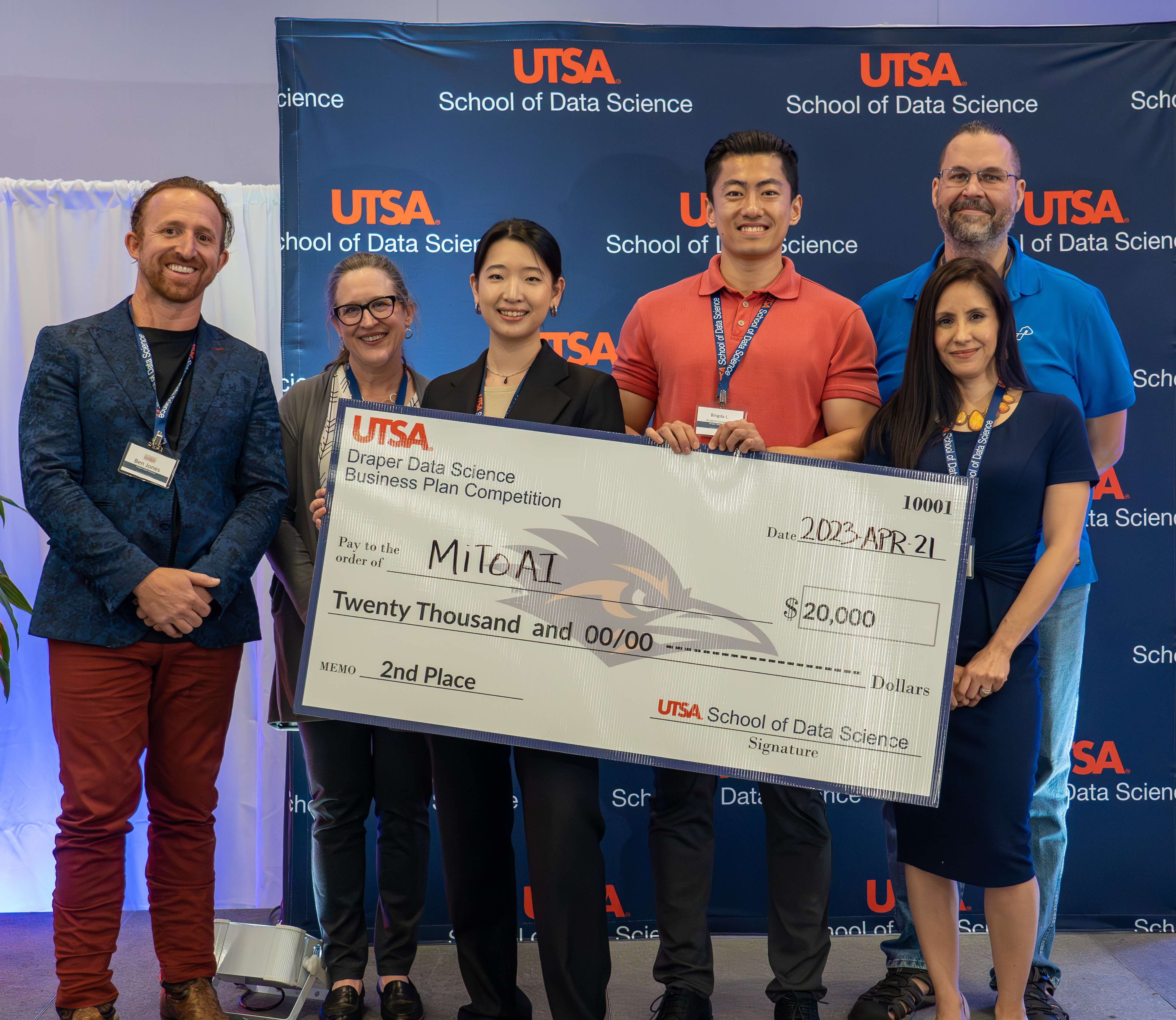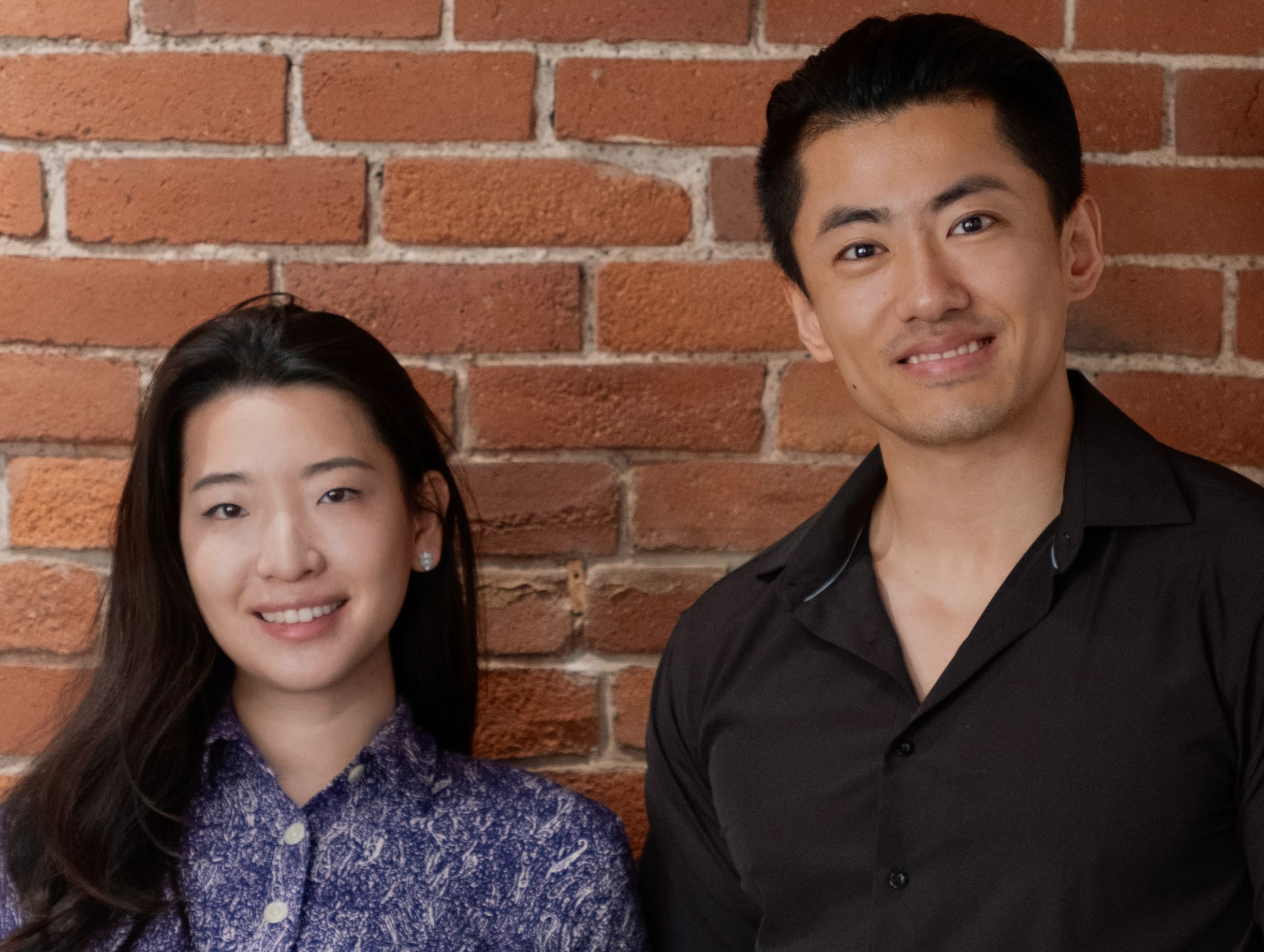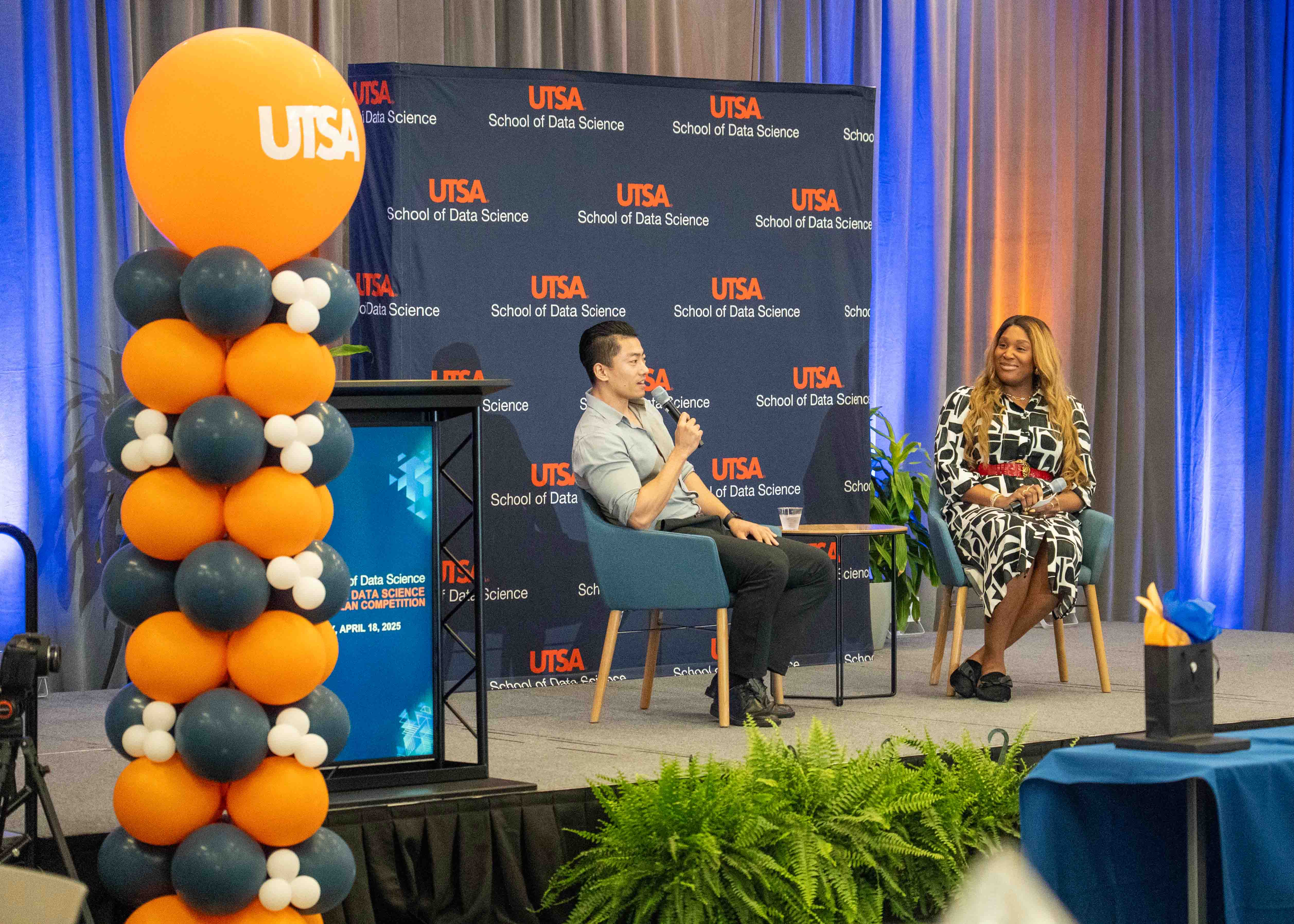Posted on April 30, 2025 by Christopher Reichert
Since 2023, 20 teams have competed in the UTSA Draper Data Science Business Plan Competition for a chance to win thousands in prize money. During that time, 12 teams have taken home their share of funds. But what happens after the checks are cashed? This year, competition attendees got to see firsthand, as 2023 second-place winner Bingda Li returned to the School of Data to share his journey as cofounder and chief executive officer of Mito Robotics. 
The Mito Robotics story begins one Saturday night in 2022, shortly after Li began Carnegie Mellon’s Ph.D. program for biomedical engineering. While collaborating with the Mayo Clinic on cell therapies for organ transplants, Li found standard manual cell culturing to be time-consuming, labor intensive and ineffective.
“The volume, the quality, and the consistency for cells is very low, and that was really hurting my research and my experiments,” Li explained. “I started thinking, ‘What if there was a robot that could do this for me? That could automate all the cell culture process for me, and for other scientists as well?’”
 Li reached out to fellow Carnegie Mellon student Xinyu Wang, then beginning her master’s in Robotics, who became Mito’s co-founder and chief technology officer. Soon after, they entered the first UTSA Draper Competition, where Mito Robotics (then MitoAI) won second place and $20,000.
Li reached out to fellow Carnegie Mellon student Xinyu Wang, then beginning her master’s in Robotics, who became Mito’s co-founder and chief technology officer. Soon after, they entered the first UTSA Draper Competition, where Mito Robotics (then MitoAI) won second place and $20,000.
Encouraged by their success, Li contacted the competition’s namesake, third-generation venture capitalist and Draper University founder Timothy Draper. The response, Li says, was underwhelming.
“I sent him my deck,” Li recalls. “It was trash; he didn’t respond…We were very early. We were just a bunch of students with ideas.”
Students with $20,000 in Draper earnings. That money funded a prototype robot, an expensive leap that enabled testing, feedback from customers and investors, and the credibility to keep building.
“That started everything,” Li said.
The prize money also helped them travel to conferences and demonstrate their progress. More importantly, it gave them independence.
“One advantage that we as a company have,” Li said, “is that the patent is owned by us and not by the university, because we used our own money from the competition to apply for the patent.”
Mito Robotics didn’t give up on Draper Associates. In late 2024, Li reached out again. This time, with a prototype and two more years of research and development, he landed a meeting with Draper himself.
“We had that one meeting, just one meeting,” Li said, “and after a week or so his colleague emailed us the termsheet ”
That “termsheet” turned out to be $1 million from Draper Associates. Now, Li and Wang are finalizing their full-scale robot and attending robotics conferences to secure new contracts. The robot is already transforming bioengineering labs.
“The robot that we built is bigger than the fridge you have in your home, and much costlier than your dream car. Nobody believed that a student could achieve that,” Li said. “But now we have delivered prototypes to a customer’s lab and it’s already accelerating life science research as we’re speaking.”
Reflecting on his experience, Li shared advice with this year’s Draper teams.
“No matter how important you think your idea is to the world, to society, to humanity, no one cares,” he warned. “But if you can make them feel that emotion that you’re feeling, then they can start to care.”
The best entrepreneurs, Li says, tell stories others can relate to.
“It’s not the information you deliver, it’s the information they receive,” he said. “If they’re receiving the right information then you will have a much higher chance of convincing people, whether it’s investors or customers. Because the minute you step on this stage or any other stage, you become a salesperson: you sell your ideas, you sell your vision, you sell your technology.”
As he surveyed the audience of the 2025 UTSA Draper Competition, Li remembered standing on the same stage two years earlier.
“Don’t make this your last pitch competition,” he urged the teams. “Whether you get money out of today’s competition or not, I think this is a great opportunity to practice, to learn and receive feedback from the judges, and continually improve your pitch.”
For more information on the UTSA Draper competition, visit https://sds.utsa.edu/draper/. To view the recording of the 2025 competition, including Li’s interview, go to https://www.youtube.com/live/AxuNUS7_J78.


